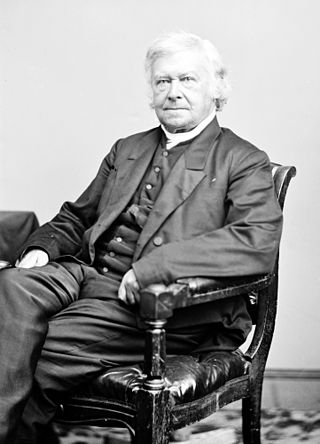
Jackson Kemper in 1835 became the first missionary bishop of the Episcopal Church in the United States of America. Especially known for his work with Native American peoples, he also founded parishes in what in his youth was considered the Northwest Territory and later became known as the "Old Northwest", hence one appellation as bishop of the "Whole Northwest". Bishop Kemper founded Nashotah House and Racine College in Wisconsin, and from 1859 until his death served as the first bishop of the Episcopal Diocese of Wisconsin.
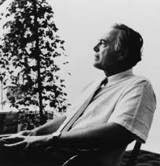
Harry Mohr Weese was an American architect who had an important role in 20th century modernism and historic preservation. His brother, Ben Weese, is also a renowned architect.

The Diocese of Fond du Lac was a diocese of the Episcopal Church in the United States of America, encompassing the northeastern third of Wisconsin. The diocese contained about 3,800 baptized members worshiping in 33 locations. It was part of Province 5. Diocesan offices were in Appleton, Wisconsin as were the diocesan Archives. Matthew Gunter was its final bishop. On May 4, 2024, the diocese voted to be disestablish itself and reintegrate into the Diocese of Wisconsin.

St. Paul's Cathedral is the mother church of the Episcopal Diocese of Fond du Lac and is located in Fond du Lac, Wisconsin which is the see city of the diocese.

John Henry Hobart Brown was the first bishop of the Diocese of Fond du Lac in the Episcopal Church.

Russell Edward Jacobus was the seventh Bishop of the Diocese of Fond du Lac in The Episcopal Church. Jacobus was consecrated as bishop on 24 May 1994. Prior to becoming bishop, he served as Rector of St. Matthias Episcopal Church in Waukesha, Wisconsin. At the close of Diocesan convention on October 20, 2012, he announced his intention to retire one year hence, on October 31, 2013.

St. James' Episcopal Church, named for James the Greater, is a historic Episcopal church located in Manitowoc, Wisconsin. The only Episcopal church in Manitowoc County, St. James' is a "broad church" parish in the Diocese of Fond du Lac. It is the oldest continually operating congregation in Manitowoc County, first meeting in 1841. and organizing in 1848. The current church building, an example of Gothic Revival architecture, was consecrated in 1902. The congregation is active in community service and social justice ministries.

All Saints Episcopal Church is a historic Episcopal church in Appleton, Wisconsin. A parish in the Diocese of Fond du Lac, it is the only Episcopal church in Appleton. The congregation first met circa 1854 and organized in 1856. The current church building was consecrated in 1905.

Trinity Episcopal Church is a historic Episcopal church located in Oshkosh, Wisconsin. The only Episcopal church in Oshkosh, Trinity is in the Diocese of Fond du Lac. The congregation first met in 1850, organizing as Trinity Episcopal Church in 1854. The current church building, which was constructed in 1887, is an example of Richardsonian Romanesque architecture. It was added to the National Register of Historic Places in 1974.
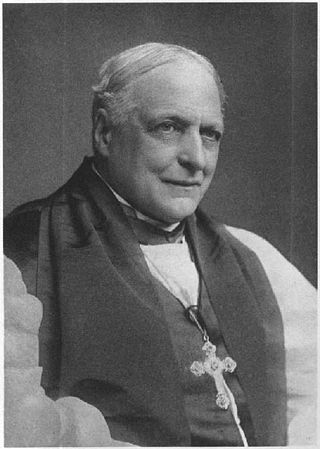
Charles Chapman Grafton was the second Episcopal Bishop of Fond du Lac, Wisconsin.

The Church of the Holy Apostles, Oneida, Wisconsin, United States, is a mission congregation of the Episcopal Diocese of Fond du Lac located on the Oneida Reservation of the Oneida Nation of Wisconsin.
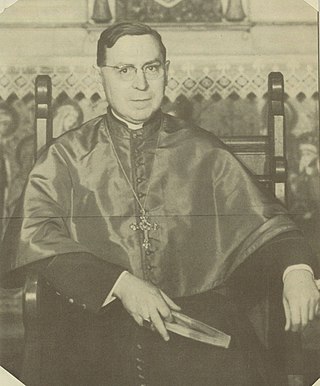
Harwood Sturtevant was the Episcopal bishop of the Diocese of Fond du Lac.
William Hampton Brady was a bishop in the American Episcopal Church.
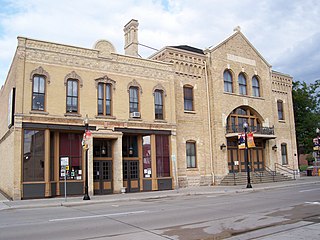
William Waters (1843–1917) was an American architect who designed numerous buildings in Wisconsin that eventually were listed on the National Register of Historic Places. He was responsible for designing much of historic Oshkosh, Wisconsin. He was also responsible for designing the Wisconsin building for the Columbian Exposition. Waters died in 1917 and is buried at Riverside Cemetery in Oshkosh. After his death, Oshkosh honored him by naming the intersection of Washington Avenue and State Street as the "William Waters Plaza".
Albert Arthur Chambers was the seventh bishop of the Episcopal Diocese of Springfield, serving from 1962 to 1972. He then retired in part because he opposed revising the Book of Common Prayer and ordaining women as priests, which would be expressly authorized by the General Convention in 1976.

St. Agnes-by-the-Lake Episcopal Church, Algoma, Wisconsin, United States, is an Anglo-Catholic mission congregation of the Episcopal Diocese of Fond du Lac. The congregation first met in 1877, becoming an organized mission in 1897.
Matthew Alan Gunter is the ninth and current bishop of the Episcopal Diocese of Wisconsin in The Episcopal Church. He assumed this post upon the 2024 merger of the Dioceses of Eau Claire and Fond du Lac with the Diocese of Milwaukee. From 2014 to 2024, he was the diocesan bishop of Fond du Lac. Prior to becoming bishop, he served as Rector of St. Barnabas Episcopal Church in Glen Ellyn, Illinois, and as Assistant Rector of St. David Church, Glenview, Illinois.
Oliver Sherman Prescott was a prominent American Anglo-Catholic priest and activist who was active in the foundation of the Society of St. John the Evangelist. He was born in New Haven, Connecticut, and baptized by Harry Croswell at Trinity Church on the Green in that city. Prescott attended Trinity College, Hartford from 1840 to 1842 and Yale College from 1843 to 1844; he was graduated from the General Theological Seminary in New York in 1847 and made a deacon that year at Trinity Church in New Haven. He considered himself a protégé at the General of Professor Clement Clarke Moore.
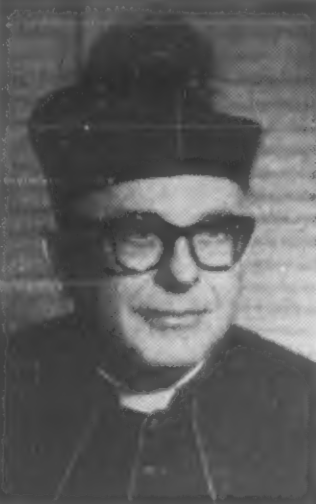
Albert Julius duBois was an influential American Anglo-Catholic priest during the 20th century.
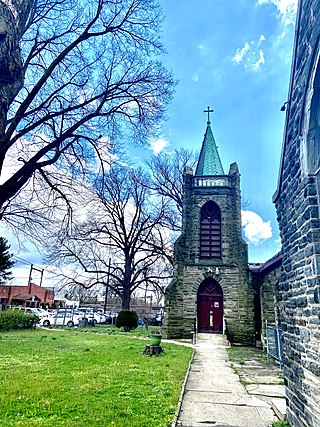
St. Alban's Church, Olney was a church of the Episcopal Diocese of Pennsylvania in the Olney section of North Philadelphia. Through the ministry and influence of its most significant rector, Archibald Campbell Knowles (1865-1961), St. Alban's was considered a major Anglo-Catholic parish of the American Protestant Episcopal Church. The building is inscribed as landmark No. 56 of the Philadelphia Historical Commission. The cornerstone for the congregation's second building was laid on January 24, 1915, and it was consecrated on June 20, 1915 by Bishop Reginald Heber Weller of the Episcopal Diocese of Fond du Lac. Its architect was George T. Pearson in the Philadelphia firm of Sloan & Hutton; his other work includes St. Luke's, Germantown, Market Square Presbyterian Church in Germantown, buildings at the Philadelphia Cricket Club, college buildings throughout the United States, and several railroad stations and hotels in Virginia.
















